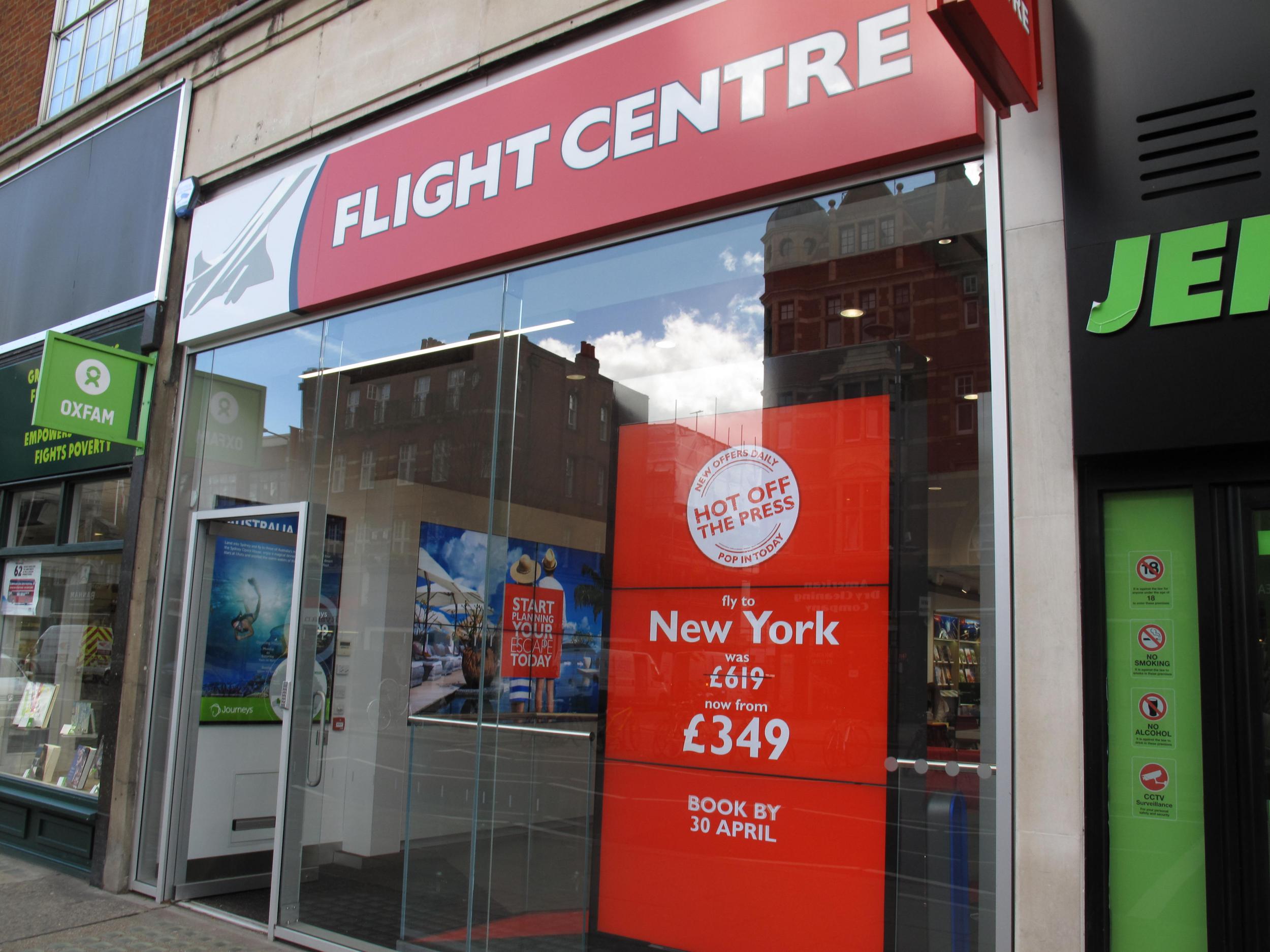The tricks of the air-fare trade revealed
Reporters went behind the scenes at one of the world's largest travel agency chains

Your support helps us to tell the story
From reproductive rights to climate change to Big Tech, The Independent is on the ground when the story is developing. Whether it's investigating the financials of Elon Musk's pro-Trump PAC or producing our latest documentary, 'The A Word', which shines a light on the American women fighting for reproductive rights, we know how important it is to parse out the facts from the messaging.
At such a critical moment in US history, we need reporters on the ground. Your donation allows us to keep sending journalists to speak to both sides of the story.
The Independent is trusted by Americans across the entire political spectrum. And unlike many other quality news outlets, we choose not to lock Americans out of our reporting and analysis with paywalls. We believe quality journalism should be available to everyone, paid for by those who can afford it.
Your support makes all the difference.Twenty-first century travellers are wearily accustomed to the idea that air fares can increase in seconds, and that after committing to a ticket you can often expect changes or cancellations to be extremely expensive. But Channel 4 Dispatches has produced evidence of how agents can mislead customers about fares, change fees and refunds.
The programme, directed by Duncan Staff, sent an undercover reporter to be trained and employed at one of the world’s leading travel agency chains: Flight Centre. The reporter, Hannah Cogan, caught on camera the tricks that some agents use against the customer’s interests.
The most basic element of a transaction is the price of a ticket. Flight Centre has a “Lowest Airfare Guarantee” and claims “We won't be beaten on price”. But the presenter, Harry Wallop, recruited his 81-year-old mother-in-law for a test purchase. They went into different London branches of Flight Centre and asked for exactly the same thing: a British Airways trip between Heathrow and New York. Mr Wallop made it clear he had shopped around and compared prices and was offered a fare of £494. But his mother-in-law was quoted £610.
Flight Centre described the discrepancy of 23 per cent as “one isolated example”. It said it has no “policy or culture of applying opportunistic or excessive margins to particular customers or demographics”.
The company has an unusual business model, in which consultants are able to decide by how much to mark up air fares.
In a secretly filmed training session, Ms Cogan was told: “It’s a combination of what they have seen already, what’s out there? What are they prepared to spend? What budget have they allocated? The worst scenario to have is, you know, you literally give a price to the customer and they turn round and go, ‘Oh my God, it was about £600 online - you’ve got it for £480, that’s awesome.’ You know and you’re going, ‘Damn it, I could have marked up another £50, £60 or whatever on that’.”
Travellers who wish to avoid paying too much can simply check prices - with other agents, or online with the airline. But even that may not give a true indication. The programme revealed the practice of “seat blocking”, in which a dummy booking is made by a consultant in order to force up the apparent fare. For example, there might be nine seats available at £250; when they have gone the fare increases to £300 to match the shrinking supply. But travel agents, unlike individual consumers, can temporarily hold seats. The customer sees the fare has increased, and books with the agent. The seats are then released and the fare falls again.
Once a sale is made, it is normal for a proportion of purchasers to need to cancel or change their booking. Airlines apply a range of conditions for changes and cancellations, and agents are free to add their own charges. The policy outlined to the Dispatches undercover reporter was “All tickets are always non-refundable,” even when some cash was due back from the booking.
As Flight Centre said in response to the programme, it is “Not unusual, unethical or immoral to apply a mark-up”. Many travellers prefer to use an agent than buying direct. But the programme reminds travellers of the need to get a picture of the level of prices, and the change and cancellations that apply, before agreeing to a deal.
Join our commenting forum
Join thought-provoking conversations, follow other Independent readers and see their replies
Comments